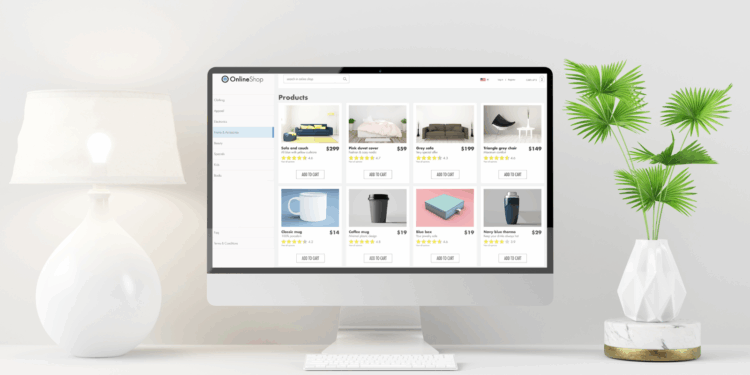In 2026, eCommerce automation is no longer a luxury, it’s the backbone of modern retail. With over 25% of small online stores now using at least one automation platform, the dropshipping industry has shifted from manual order forwarding and supplier hunting to fully integrated, AI-driven ecosystems.
Across Amazon, eBay, and Shopify, automated dropshipping tools now handle everything from product sourcing and repricing to inventory updates and order fulfillment. But not all platforms are built equally, some focus on bulk scalability, others on simplicity or channel diversity.
Below, we rank the Top 10 Automated Dropshipping Tools for 2026, assessing how they perform across integrations, automation depth, and usability.
1. Easync — The Best Automated Dropshipping Tool for Beginners and Professionals
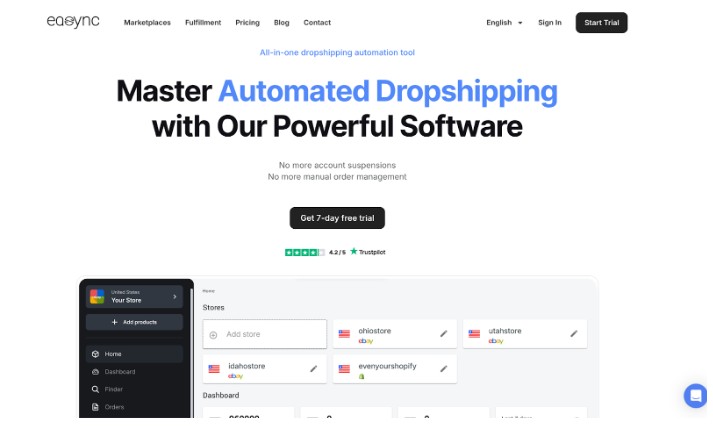
Best for: eBay and Amazon sellers seeking a reliable, AI-powered automation system.
Overview:
Easync has established itself as the market leader in dropshipping automation thanks to its ease of use, robust multi-channel integrations, and deep automation features. The platform allows sellers to connect with trusted suppliers, automatically import products, track stock levels in real time, and fulfill orders without manual input.
Easync’s eBay integration is particularly strong, offering automatic repricing, order syncing, and an AI title builder that optimizes listings for better search visibility. Its Amazon and Shopify integrations make it equally valuable for omnichannel sellers managing large catalogs.
Key Features:
- Fully automated product importing and order fulfillment
- AI-powered eBay Title Builder and SEO tools
- Dynamic price and inventory synchronization
- Multi-supplier network with verified UK, EU, and US distributors
- Chrome extension for fast product sourcing
Pros:
✔️ Reliable automation with minimal downtime
✔️ User-friendly interface suitable for beginners
✔️ Supports eBay, Amazon, and Shopify seamlessly
✔️ Responsive support and detailed analytics
Cons:
❌ Some advanced analytics are locked behind premium tiers
❌ Slight learning curve for multi-channel setup
Verdict:
Easync offers the best balance between simplicity and sophistication. It’s a one-stop automation engine designed for sellers who want to scale efficiently without getting buried in logistics.
2. DSers — Shopify’s Preferred AliExpress Partner
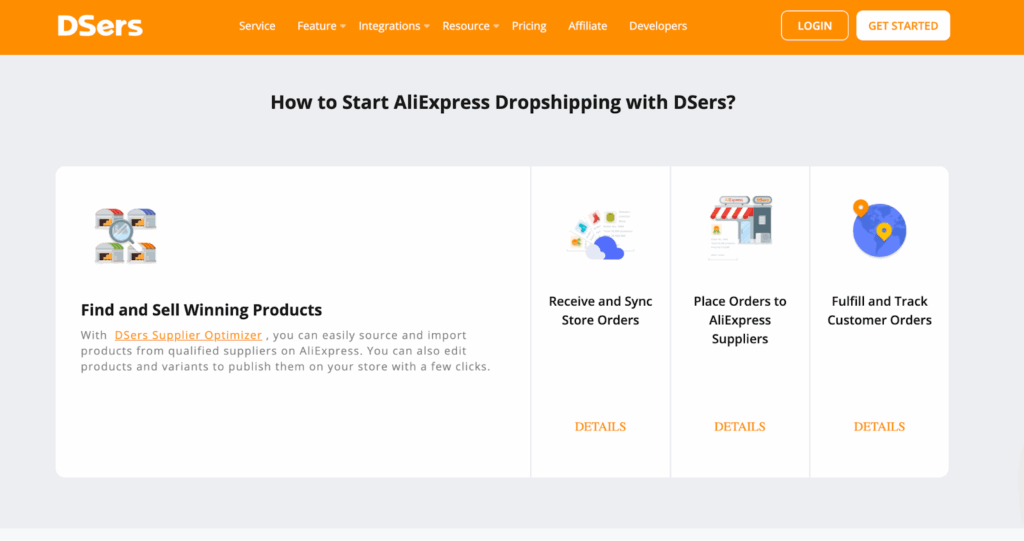
Best for: Shopify users and AliExpress sourcing.
DSers is the official AliExpress partner for Shopify automation, known for its smooth product import process and order batching. It helps sellers manage thousands of SKUs and syncs orders directly with suppliers.
Pros: Fast order processing, bulk operations, affordable pricing.
Cons: Limited integrations beyond Shopify and AliExpress.
3. AutoDS — Multi-Platform Automation at Scale
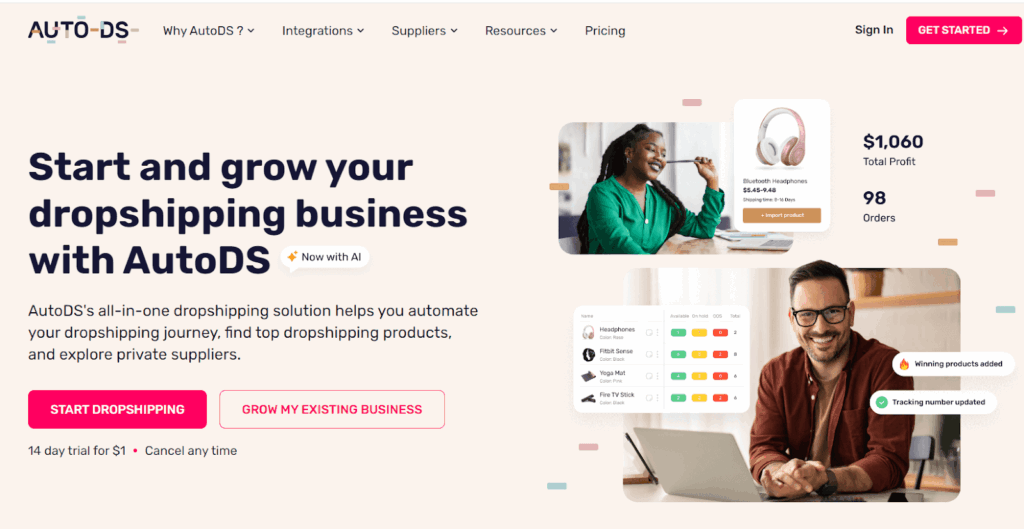
Best for: Sellers managing multiple stores across marketplaces.
AutoDS integrates with eBay, Shopify, Facebook Marketplace, and Wix, offering smart automation for product imports, inventory, and pricing. Its standout feature is automatic order fulfillment using AI credit balance, reducing payment friction with suppliers.
Pros: Excellent cross-channel automation, built-in product finder.
Cons: Interface can be overwhelming for new users.
4. Spocket — High-Quality Suppliers and Local Fulfillment
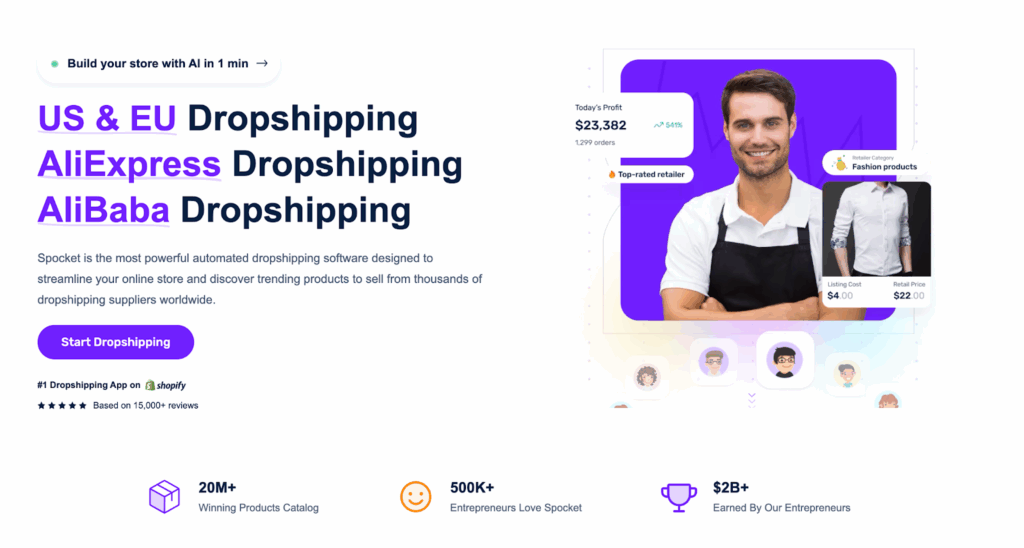
Best for: Shopify and WooCommerce sellers prioritizing product quality and shipping speed.
Spocket connects retailers with verified EU and US suppliers, ensuring fast delivery and premium branding options. Its visual product catalog is intuitive, making it ideal for sellers focused on lifestyle or fashion niches.
Pros: Fast local shipping, strong supplier vetting.
Cons: Smaller catalog than AliExpress-based tools; limited Amazon support.
5. Syncee — AI-Powered Product Discovery
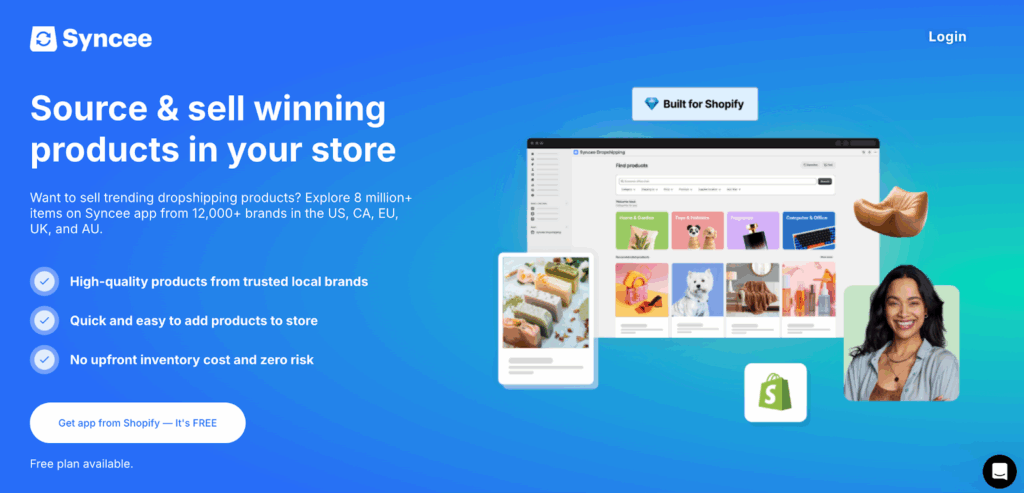
Best for: Shopify and Wix sellers seeking curated, data-driven product recommendations.
Syncee’s AI scans product performance data to recommend trending products. The tool also syncs inventory, pricing, and supplier updates automatically.
Pros: AI trend prediction, automated stock updates.
Cons: Fewer advanced fulfillment features than competitors.
6. Avasam — The UK’s Premier Automated Dropshipping Platform
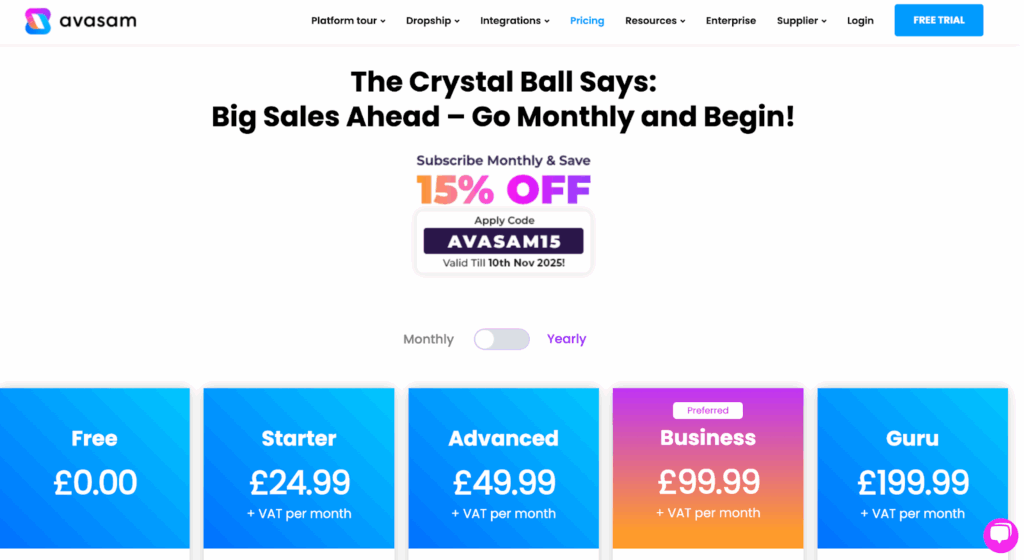
Best for: UK and EU sellers who prioritize verified local suppliers.
Avasam’s end-to-end automation makes it a go-to choice for British entrepreneurs. With built-in supplier vetting and VAT compliance tools, it helps ensure regulatory alignment.
Pros: Verified UK suppliers, excellent local integrations.
Cons: Interface can feel dated; limited international suppliers.
7. Hustle Got Real — All-in-One UK-Based Automation
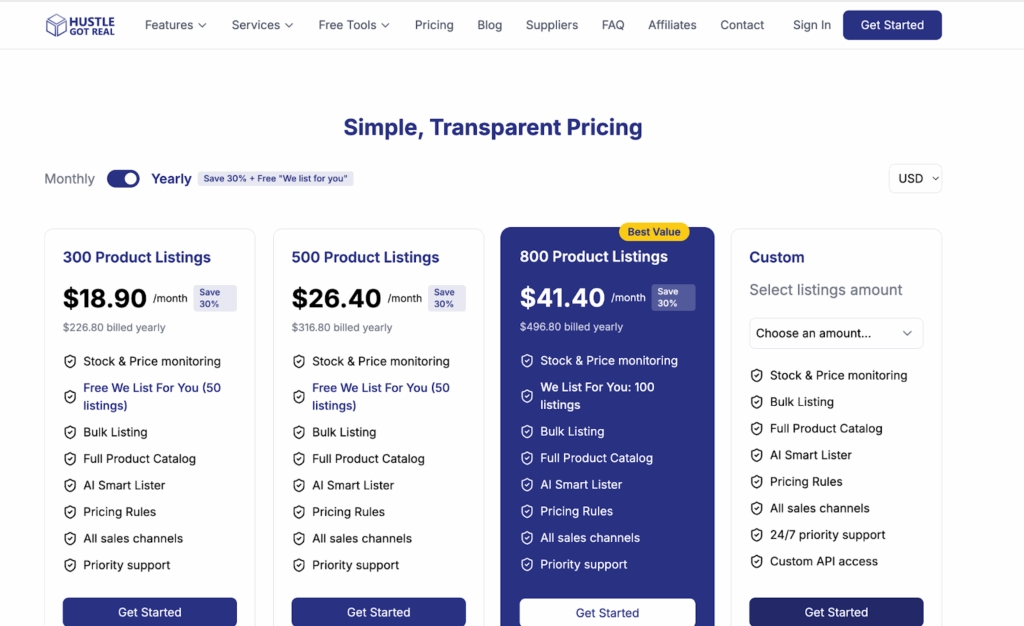
Best for: eBay and Amazon sellers who value simplicity and local support.
This UK-based platform automates price monitoring, stock syncing, and order forwarding. Its Chrome extension supports one-click product imports from multiple suppliers.
Pros: Strong eBay automation, transparent pricing.
Cons: Smaller integration network compared to global competitors.
8. BigBuy — European B2B Fulfillment Powerhouse
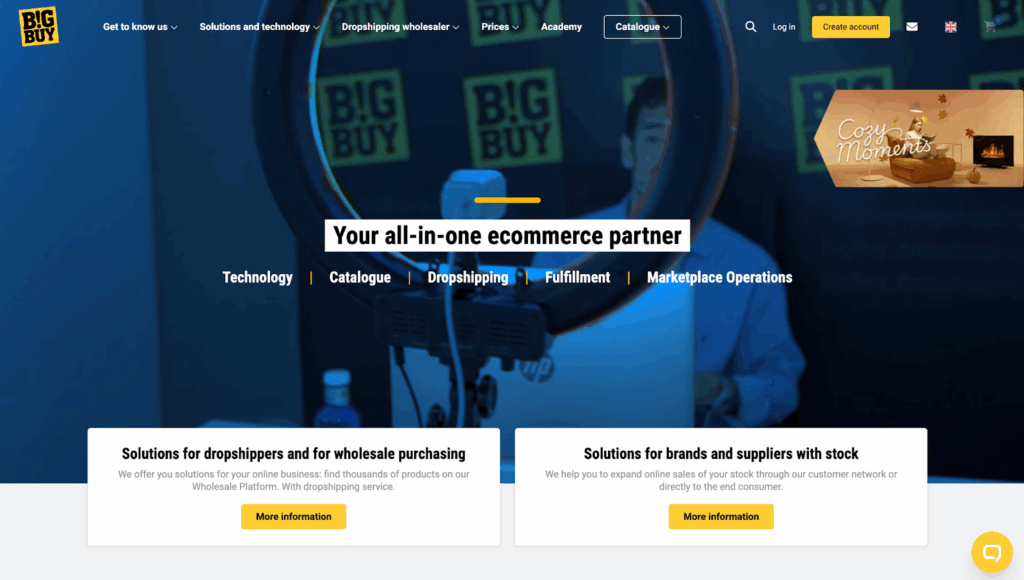
Best for: Large-scale eCommerce operations seeking unified automation and logistics.
BigBuy offers a wholesale-meets-automation model. Sellers can connect via API or native integrations and benefit from centralized stock and fulfillment services.
Pros: Warehouse fulfillment, enterprise-level tools.
Cons: Higher minimum order volumes, less suitable for beginners.
9. Modalyst — Curated Brands and Print-on-Demand
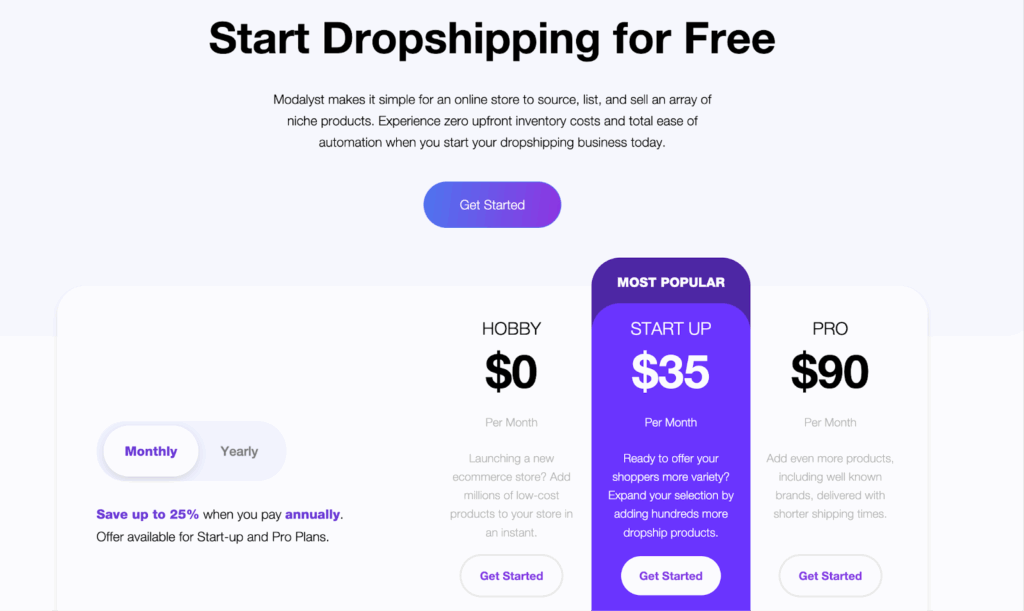
Best for: Fashion and lifestyle sellers looking for unique brands.
Modalyst integrates with Shopify and Wix, offering boutique-level product sourcing and premium packaging options. It recently expanded its automation for personalized orders.
Pros: Brand-focused suppliers, easy-to-use dashboard.
Cons: Smaller marketplace integrations; mid-range pricing.
10. CJ Dropshipping — Global Reach, Expanding Automation
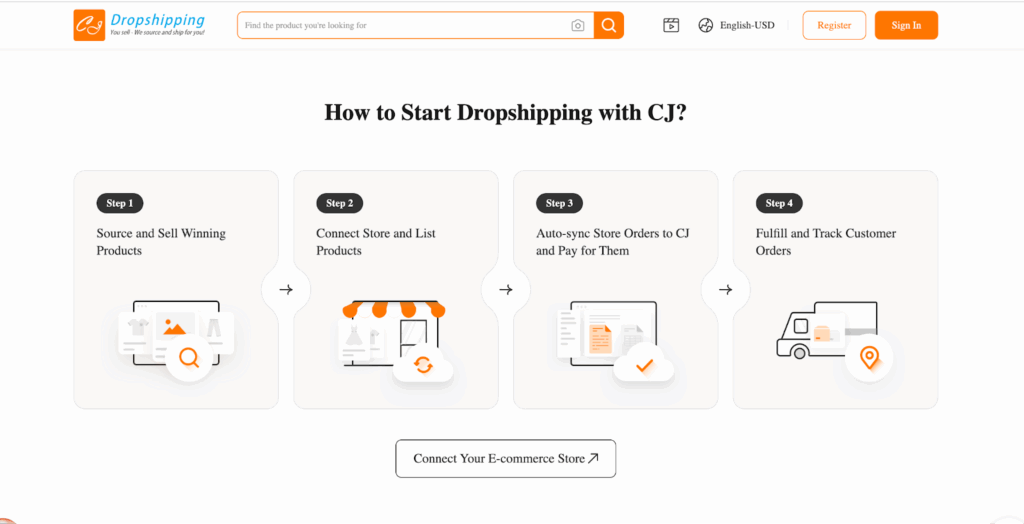
Best for: Sellers mixing UK/EU and global suppliers.
CJ Dropshipping remains one of the most flexible platforms for cross-border fulfillment. Its automation tools continue to improve, with growing support for EU warehouses.
Pros: Global supplier reach, branding options, packaging control.
Cons: UI cluttered for new users; limited AI-driven tools.
Comparison Snapshot — Top 10 Automated Dropshipping Tools
| Rank | Platform | Best For | Supported Channels | Automation Level | AI Features | Avg. Price/Month |
| 1 | Easync.io | All-in-one automation | eBay, Amazon, Shopify | ★★★★★ | ✔️ AI Title Builder | From $29 |
| 2 | DSers | Shopify beginners | Shopify, AliExpress | ★★★★☆ | ❌ | Free–$49 |
| 3 | AutoDS | Multi-channel sellers | eBay, Shopify, Wix | ★★★★★ | ✔️ AI Fulfillment | From $39 |
| 4 | Spocket | Premium suppliers | Shopify, WooCommerce | ★★★★☆ | ❌ | From $24 |
| 5 | Syncee | Data-driven sourcing | Shopify, Wix | ★★★★☆ | ✔️ Product AI | From $29 |
| 6 | Avasam | UK dropshippers | Shopify, WooCommerce, eBay | ★★★★☆ | ❌ | From £25 |
| 7 | Hustle Got Real | eBay sellers | eBay, Amazon | ★★★☆☆ | ❌ | From £27 |
| 8 | BigBuy | Enterprise stores | Shopify, PrestaShop, API | ★★★★★ | ❌ | Custom |
| 9 | Modalyst | Fashion niche | Shopify, Wix | ★★★★☆ | ❌ | From $25 |
| 10 | CJ Dropshipping | Global sourcing | eBay, Shopify | ★★★☆☆ | ❌ | Free–$39 |
Final Thoughts
Automation has officially replaced manual management in modern dropshipping. Whether you’re an eBay seller scaling multiple accounts or a Shopify merchant chasing higher margins, the right tool determines your agility and accuracy.
While platforms like AutoDS and Spocket excel at specific niches, Easync stands out as the best overall automation tool for 2026 — offering balance, reliability, and the most accessible AI-powered feature set for sellers at every level.
For eCommerce entrepreneurs, the choice is simple: in a world where milliseconds matter and algorithms shape visibility, the future of dropshipping belongs to those who automate intelligently.

